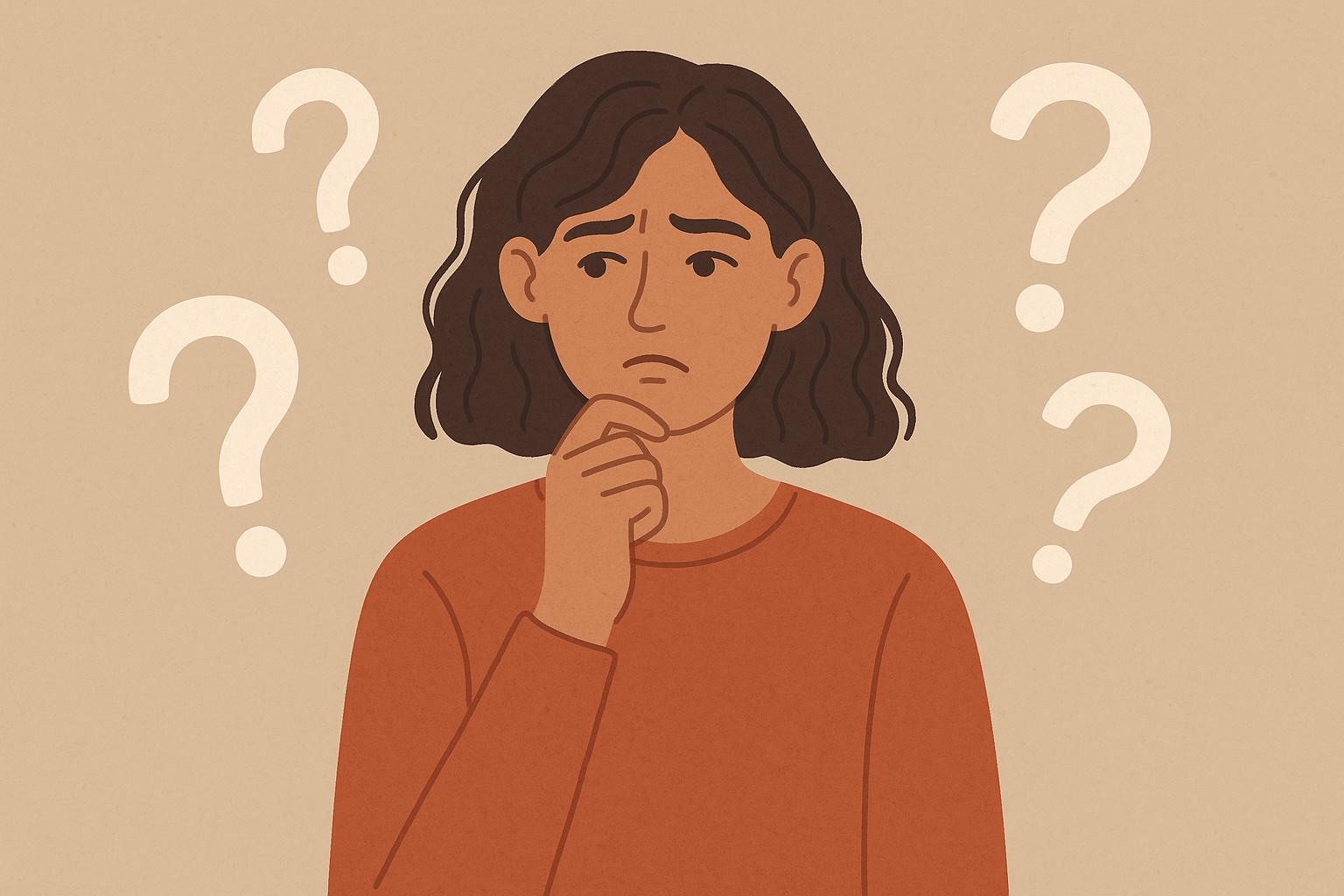“Is This Abuse?” Common Doubts Survivors Face and How to Validate Your Experience
If you're questioning whether what you're experiencing is abuse, you're not alone. Learn how to spot red flags, overcome self-doubt, and trust your instincts.

Many people in abusive relationships don’t recognize it right away. Abuse isn’t always violent or obvious—it can be subtle, confusing, and masked as love or concern. If you’ve found yourself wondering,**“Is this abuse?”**, know that you are not alone.
This guide helps you recognize red flags, validate your experiences, and trust your inner voice.
***
### 🤔 Why Survivors Often Doubt Themselves
* “They never hit me, so it can’t be abuse.”
* “It only happens when they’re stressed.”
* “They say it’s my fault—I push them too far.”
* “I love them… isn’t that supposed to be hard sometimes?”
* “They apologized and promised to change.”
* “It was worse for other people—I shouldn’t complain.”
* “They’re amazing in public. No one would believe me.”
> Self-doubt is a powerful tool used by abusers to keep you trapped.
***
### 🚩 Signs You Might Be in an Abusive Relationship
Ask yourself:
* Do I feel afraid of my partner, even if I can’t explain why?
* Do they criticize, insult, or humiliate me often?
* Do I feel like I’m constantly walking on eggshells?
* Have they isolated me from friends or family?
* Do they control where I go, what I wear, or who I talk to?
* Do they guilt me into sex or affection I don’t want to give?
* Do they check my phone, social media, or bank account without permission?
* Do I feel like I’m losing myself?
If you answered “yes” to more than one, it’s time to look closer.
***
### 🧠 Why Emotional and Psychological Abuse Is Harder to Name
* It happens gradually
* It often looks like love or protection at first
* The abuser twists your reality (gaslighting)
* Society minimizes or romanticizes control (“they’re just jealous because they love you”)
* Survivors are often told to “just fix the relationship” instead of naming the harm
***
### 💡 How to Validate Your Experience
* **Your feelings are real**—confusion, fear, sadness, anger
* If you feel unsafe or small in your own home, something is wrong
* Compare your relationship to healthy ones—not just worse ones
* Talk to a support worker or shelter—they won’t judge you
* Abuse doesn’t have to be “bad enough” to deserve help
> If you’re asking, “Is this abuse?”—you’ve already noticed something’s not right.
***
### 🗣️ What Survivors Say in Hindsight
* “I wish I had trusted my gut sooner.”
* “The silence and control were worse than any bruises.”
* “I didn’t know it was abuse until I told someone and they said, ‘That’s not normal.’”
* “Leaving was hard, but staying was killing me slowly.”
***
### 📌 Summary: Validating Your Experience
* ✅ Abuse isn’t always physical—it can be emotional, sexual, or financial
* ✅ Confusion, guilt, and fear are common responses to abuse
* ✅ If you feel trapped, afraid, or silenced—it matters
* ✅ You don’t need proof to ask for help
* ✅ Trust your gut—it’s wiser than you think
***
### 📞 Where to Talk to Someone Safely
* **Assaulted Women’s Helpline (24/7):** 1-866-863-0511
* **Luke’s Place (Ontario):** Legal help for women in abusive relationships
* **211 Ontario:** Find free local support services
* **Shelters and counselling centres** – Available even if you’re not ready to leave
* **Barbra Schlifer Clinic:** Trauma-informed counselling and legal aid
***
### Frequently Asked Questions (FAQs)
#### 1. Is it still abuse if he doesn't hit me?
Yes, absolutely. Abuse is about power and control, and it takes many forms. Emotional abuse, financial control, isolation, and intimidation are all serious forms of domestic violence.
#### 2. Why do I feel like I'm exaggerating or being too sensitive?
This feeling is often a direct result of the abuser's tactics, such as "gaslighting," where they make you doubt your own perceptions and sanity. An abuser will often tell you that you are "too sensitive" or "crazy" to maintain control.
#### 3. How can I trust my own judgment about my relationship?
A powerful way to start trusting your judgment again is to secretly document what is happening. Write down the facts of an incident right after it happens. Later, when you are feeling confused or blaming yourself, you can read your own factual account. This helps to ground you in reality.
#### 4. My partner always apologizes and promises to change. How do I know if it's real this time?
This is part of the cycle of abuse. The key is to look at their actions, not their words. Have they taken concrete steps to change, like seeking long-term specialized counselling for abusive behaviour? Or do they just apologize and then repeat the same behaviour later? A pattern of repeated apologies without real change is a sign of manipulation, not a genuine desire to change.
#### 5. Is it normal to still love someone who is abusing me?
Yes. It is very common and normal to have conflicting feelings. You may still love the person they are during the "good times" while hating the abuse. These confusing feelings are often part of a "trauma bond," which is a strong attachment created by the intense cycle of abuse and positive reinforcement.
#### 6. Where can I talk to someone confidentially in Ontario to figure out if what I'm experiencing is abuse?
You can call the Assaulted Women's Helpline at 1-866-863-0511. It is a free, confidential, 24/7 service. The trained counsellors can help you understand what you're going through, listen without judgment, and help you see your situation more clearly.
